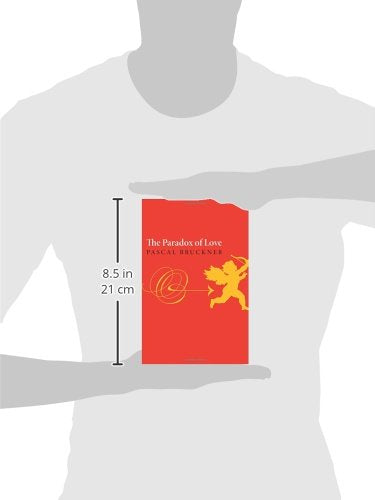The Paradox of Love
The Paradox of Love is backordered and will ship as soon as it is back in stock.
Couldn't load pickup availability
Genuine Products Guarantee
Genuine Products Guarantee
We guarantee 100% genuine products, and if proven otherwise, we will compensate you with 10 times the product's cost.
Delivery and Shipping
Delivery and Shipping
Products are generally ready for dispatch within 1 day and typically reach you in 3 to 5 days.
Book Details
-
Author: Pascal Bruckner
-
Publisher: Princeton University Press
-
Binding: Hardcover
-
ISBN: 9780691149141
-
Pages: 272
-
Release Date: 13-02-2012
-
Dimensions: 8.7 x 5.9 x 1.0 inches
-
Languages: English
About the Book
In this lively and provocative reflection, Pascal Bruckner, one of France’s leading writers, examines the paradoxes of modern love in the wake of the sexual revolution. While the revolution is justly celebrated for its contributions to freedom—birth control, the decriminalization of abortion, liberalized divorce, greater gender equality, women’s entry into the workforce, and tolerance of homosexuality—Bruckner argues that these newfound freedoms have also introduced new burdens and expectations.
Through a blend of history, politics, psychology, literature, and pop culture, Bruckner dissects how, despite the relaxation of old rules, modern relationships still wrestle with timeless dilemmas: marriage, jealousy, the demand for fidelity, and the tension between constancy and inconstancy. He explores the contradiction at the heart of the 1960s ideal of "free love", which sought to unite freedom with love, but ultimately led to confusion and paradoxes in today’s relationships.
Bruckner argues that in our age of liberated sexual norms, we have traded neuroses of repression for neuroses of inadequacy. We are ashamed that our sex lives don’t meet the idealized standards of liberation, and in trying to overcompensate, we lie about our immorality. The book ultimately contends that love makes no progress, and its inherent messiness and contradictions are not merely sources of pain—but also of pleasure and glory.
With irony and optimism, this book is a compelling examination of how modern relationships are defined, the paradoxes that shape them, and the balance we must strike between the ideals of freedom and the attachments of love.







